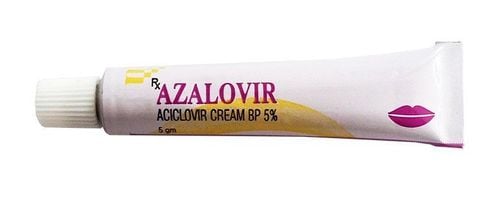This is an automatically translated article.
Zenapax is an antineoplastic and immunomodulatory drug indicated for the prophylaxis of acute rejection in renal transplant patients. What are the uses of Zenapax?
1. What does Zenapax do?
Zenapax medicine belongs to the group of anti-cancer drugs and acts on the immune system with the main ingredient being daclizumab and other excipients in moderation including:
Sodium phosphate monobasic monohydrate Sodium phosphate dibasic heptahydrate Sodium chloride Polysorbate Possible hydrochloric acid or sodium hydroxide for pH regulation Daclizumab is an immunosuppressive, humanized IgG1 monoclonal antibody produced by recombinant DNA technology that binds specifically to the alpha subunit of the interleukin-2 receptor High affinity, expressed on the surface of activated lymphocytes.
2. Indications and contraindications to the drug Zenapax
2.1 Indications for the use of Zenapax is indicated for the use of Zenapax in the following cases:
In kidney transplant patients, it is necessary to prevent acute rejection. Acute prophylaxis in organ transplant recipients Besides the above uses, Zenapax may also be used to treat a number of other conditions not listed above. Therefore, users need to consult and listen to the doctor's opinion before taking the drug for advice on how to use the drug most effectively.
2.2 Contraindications to the use of Zenapax is contraindicated to use Zenapax in patients with a history of allergy to any of its ingredients.
3. Usage and dosage of Zenapax drug Zenapax drug is prepared in the form of an injection solution, so the drug is injected intravenously. Dosage of the drug Z
Zenapax is made in the form of a solution for injection, so it is given intravenously. Dosage of Zenapax will depend on the condition and age of the patient. The recommended dose in adults and children is 1 mg/kg mixed with 50 mL of 0.9% sodium chloride and administered by peripheral or central intravenous infusion over a 15-minute period. Based on clinical trials, the standard course of Zenapax therapy is 5 doses, the first dose should be given no more than 24 hours before transplantation and the remaining 4 doses should be administered over a 14-day period.
4. Undesirable effects when using the drug Zenapax
Some unwanted effects that may occur when using Zenapax include:
Digestive disorders: nausea, vomiting, diarrhea, abdominal pain, indigestion, tenesmus, abdominal distension, epigastric pain, ... Edema of extremities Central and peripheral nervous system: tremor, dizziness, headache,... Urinary system: oliguria, dysuria, tubular necrosis, hydronephrosis, urinary tract bleeding , kidney failure,... Autonomic nervous system: increase or decrease blood pressure Respiratory system: dyspnea, pulmonary edema, cough, pharyngitis, rhinitis, rales, pleural effusion,... complete: increased heart rate, blood clots, platelet disorder, bleeding Whole body: fever, fatigue, muscle pain, insomnia,... Before prescribing a drug, the doctor always considers the benefits and effects Zenapax carries a greater risk of side effects. However, some cases when using Zenapax can still occur unwanted effects. Therefore, when the body has abnormal signs during or after the injection, or when severe allergic reactions are accompanied by serious signs such as dizziness, difficulty breathing, face, throat and tongue swelling, rash or itching,... At this time, the patient or family member must immediately notify the nearest medical staff for immediate treatment.
5. Some notes when using Zenapax
Some notes when using Zenapax include:
Inform your doctor about any history of hypersensitivity, allergy to Zenapax or any other allergies. Zenapax may contain ingredients that don't work and could cause an allergic reaction or other serious problems. You need to list the medications you are taking for your doctor to know including prescription and over-the-counter drugs, preservatives, herbs and supplements, and foods. Because Zenapax is administered by infusion under the direction of a healthcare professional, missed doses and overdoses are very limited. Therefore, when a missed dose or overdose occurs and serious reactions occur, the patient should immediately notify the medical staff for timely treatment.
6. Drug interactions
Drug interactions can decrease the effectiveness of Zenapax, or increase the effect of unwanted effects. Tell your doctor about all other medicines you are taking including vitamins, prescription or over-the-counter medicines, and other herbal products. Do not stop, start, or change the dose of any medication without your doctor's consent without your doctor's consent.
7.How to store Zenapax?
Zenapax medicine is stored in medical facilities at room temperature, protected from light and away from moisture. If the solution has been reconstituted, it should be used within 4 hours, or if it is refrigerated from 2 to 8 degrees Celsius, it can be used within 24 hours. Do not store Zenapax in a humid place or in the freezer.
In summary, Zenapax belongs to the class of antineoplastic and immunosuppressive drugs indicated for the prophylaxis of acute rejection in renal transplant patients. However, Zenapax may cause some unwanted effects and drug interactions, in order to increase the effectiveness of the treatment process, users should inform the doctor about the medicines you are taking to reduce the risk of getting sick. unwanted effects during treatment.
Follow Vinmec International General Hospital website to get more health, nutrition and beauty information to protect the health of yourself and your loved ones in your family.
Reference source: rxlist.com













